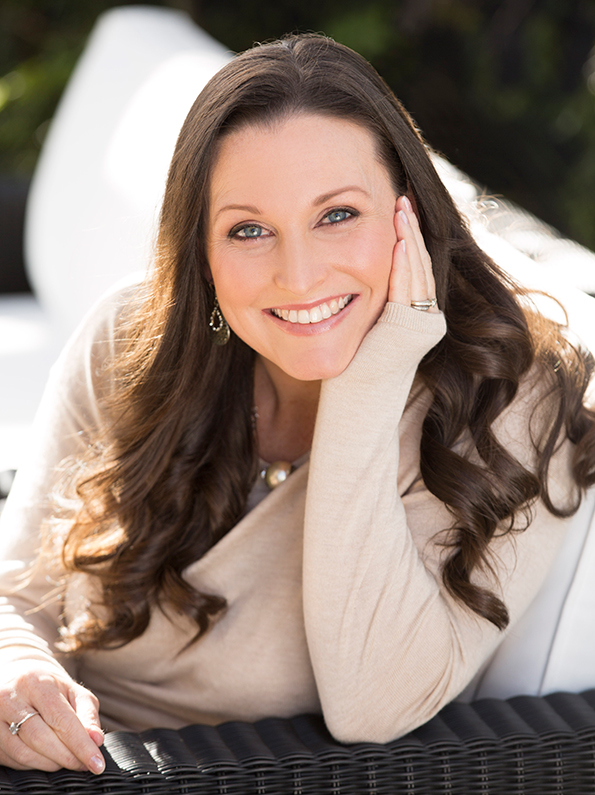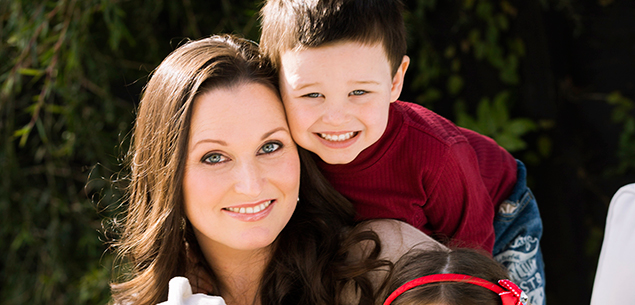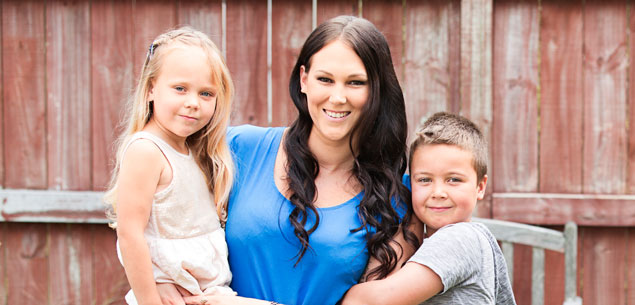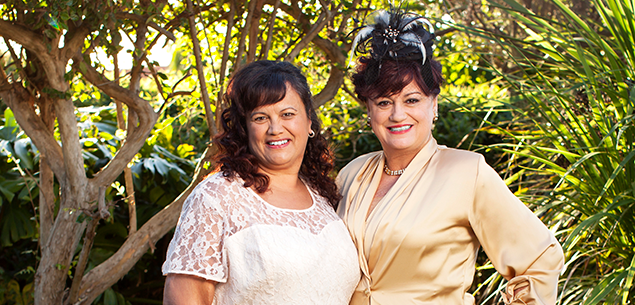When intermediate school teacher Sarah Stead found out she was pregnant, she was absolutely delighted. After suffering a miscarriage just a few months earlier, the bubbly 32-year-old was looking forward to welcoming a third child into her young family.
But before she could even think about baby names or what colour to paint the spare room, her world turned upside down. Just 16 weeks into the pregnancy, she suffered a stroke – the first of four within a week.
“I never thought this could happen,” says Sarah, a year on from her ordeal. “In your thirties, you think you are on top of the world. I was an Irish dancer and enjoyed rock climbing, bungee jumping, skydiving and surfing before I had the strokes. I was very active with two children. I ran a local playgroup and took my kids to playdates as any normal mother does.
“You think a stroke is an old person’s thing. My grandmother had a stroke, but she was 72. My father, too, had three pulmonary embolisms from deep vein thrombosis and was lucky to be alive.”

Newborn Charlotte in hospital.
Luckily, Sarah (now 33) gave birth to her perfectly healthy “miracle baby” Charlotte nine months ago and feels immensely blessed that her strokes – caused by blood clots – didn’t affect her unborn child.
“Doctors put me on blood-thinning medication and I worried what it could do to my baby. I thought they might want to abort,” she recalls. “They tried to reassure me Charlotte would be fine, but I wasn’t ever going to be completely reassured until I had a healthy baby in my arms.”
Sarah had a transient ischemic attack (mini-stroke) on May 31, 2013, while preparing for her day’s work at Auckland’s Remuera Intermediate School, where she taught part-time. “I felt dizzy, disorientated and bizarre,” she recalls.
“I tried to compose myself but when I got to my classroom, some children were in there. I didn’t want to spook them, so I went into the staffroom to make a cup of tea but forgot how to make it! Another teacher asked what was wrong and I told her I didn’t know. I felt numb on the right side of my body.”

Sarah was rushed to hospital and had a two-hour labour.
Sarah was rushed to hospital, where doctors learned she’d suffered a series of strokes.She then spent three weeks in recovery.
It was a challenging journey to learn to talk, walk, cook, clean and be a mother to Isabella (5) and Reuben (4) all over again.
“I lost my hearing in my right ear and almost completely lost my speech. I couldn’t write either,” Sarah explains. “If I saw the letter ‘H’, I thought it was a ‘T’. Everything was jumbled.”
Sarah was an avid reader before the stroke.
“After the strokes, I developed aphasia [difficulty speaking, reading and writing] and I couldn’t make any decisions. That went away after a few days but I was left with apraxia of speech, which meant I mixed up my words.
As she chats, Sarah refers to the book of medical notes she’s kept to remember the details.
“I tried to butter my toast with a spoon and put the jam on first – it seemed logical at the time! I was very mixed up.
“I felt disabled. I remember trying to communicate with Mum, Dad and my husband Eric. I couldn’t talk or write so I kept pointing at myself to say, ‘I’m still me inside.'”

Sarah, pictured with Reuben, Isabella and baby Charlotte, says she’s “95% back” to her old self since the strokes.
While Eric (34), a chartered accountant, continued to work to support the family, Sarah re-learned basic skills.
“Eric was my pillar of strength,” she smiles. “I leaned on him like never before. We have a mortgage and with me not working, and my medical expenses, it was tough, but I did get a lot of moral support from the Stroke Foundation. I had a speech therapist, occupational therapist and psychologist visit me at home. It was hard on our whole family – everyone was worried.”
Today, Sarah’s life is a different picture from 12 months ago. She can drive, cook, read, speak with almost perfect articulation, and most of the feeling to the right side of her body has returned. She believes she’s “95% back” to the person she was before the strokes and hopes to return to work part-time.
“The fact that I can talk and people can understand me is huge,” Sarah smiles. “Before, I couldn’t even pour a glass of water. I have more energy now, but I still get tired. I’m social, but I need more quiet time. I’m very lucky to have recovered so well.
“It’s important to look after yourself, especially if you have a family history of blood clots and strokes. A stroke is not just something that happens to the elderly, it could happen to anyone.”
Stroke: The facts
Nine thousand New Zealanders every year have a stroke
About 2500 Kiwis die every year from strokes, making it the third largest killer in New Zealand
Ten percent of deaths occur in people under 65
Twenty-five percent of strokes occur in those under 65
There are an estimated 60,000 stroke survivors in New Zealand
One in five New Zealanders has high blood pressure, a major contributor to stroke.


